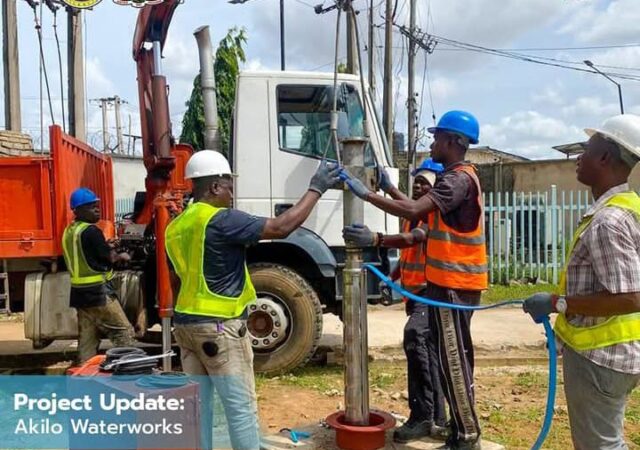President Muhammadu Buhari has directed the Federal Ministry of Finance, Budget and Planning to release to Germany-based Siemens AG the country’s share of funding in the electricity deal agreed in July 2019, setting up the nation’s power distribution infrastructure for a new lease of life.
According to BusinessDay, a letter from the Ministry of Finance to Ministry of Power, dated April 28, 2020, revealed that Finance Ministry will pay from the Signature Bonus Account the negotiated sum of 15, 206,166 euros (offshore works) and N1.7billion (onshore works) which has been approved as Nigeria’s 15 percent counterpart funding for the concessionary loan.
The letter also revealed that the president had also directed that the relevant agencies immediately conclude the necessary procurement and contracting processes to kick-off Phase 1 of the project and that the Finance Ministry should establish and capitalise a project SPV to engage Siemens to commence the pre-engineering and financing workstreams.
The president directed that Siemens AG be charged with nominating EPC partners to perform all onshore works, keeping Nigerian EPC contractors off the works.
According to the letter, the objective is “to preserve the integrity and transparency of the procurement process under the government to government framework”.
“This signals that the Federal Government is in a hurry to leave a legacy of improved power delivery,” Chuks Nwani, an energy lawyer based in Lagos told the newspaper.
The Federal Government has convinced the distribution companies to sign the concessionary loan agreement as they would enjoy the immediate benefit of improved power distribution assets.
According to Nwani, it will also obligate them to repay but the Federal Government, by this action is guaranteeing the whole sum to quickly start development while finalising the agreement with the DisCos.
“Consumers will be the biggest winners as it will translate to improved power delivery if all proceed according to plans,” Nwani added about the deal.
However, industry experts have argued that the problem with Nigeria’s power sector is not just about decrepit network infrastructure, but also about discipline in enforcing and complying with market rules.
At a recent Power Sector Webinar organised by PwC Nigeria, Eyo Epo said there was an urgent need to fix governance at the public and private aspects of the power sector and the regulator needs to be proactive in fixing the market and enforcing rules.
Meanwhile, Buhari directed that legal agreement between the project SPV and the Siemens Consortium be reviewed by the Attorney General to the Federation, Abubakar Malami.
In his New year day message, the president promised Nigerians a significant improvement in electricity service supply in the next 12 months, banking on new public and private investments into the sector.
The six-year electricity deal, which resulted from the meeting between Buhari and the German Chancellor, Angela Merkel, on August 31, 2018 in Abuja, was signed by the Federal Government and Siemens AG on July 22, 2019.
The three-phase Nigerian electrification project which aims to achieve 25,000 megawatts of electricity in the country by 2025 will require up to N1.15 trillion to execute, according to the Technical and Commercial Proposal.
At the signing ceremony, the president stated that it was evident that more work needed to be done to upgrade the transmission and distribution system, adding that the government was initially reluctant to intervene as the distribution sector had already been privatised.
In July 2018, Siemens announced the completion of the Egypt Megaproject in record time, adding 14,400MW of power generation capacity to Egypt’s national grid in 27.5 months.
Source: www.Aledeh.com








I don’t think the title of your article matches the content lol. Just kidding, mainly because I had some doubts after reading the article.
PK
I don’t think the title of your article matches the content lol. Just kidding, mainly because I had some doubts after reading the article.